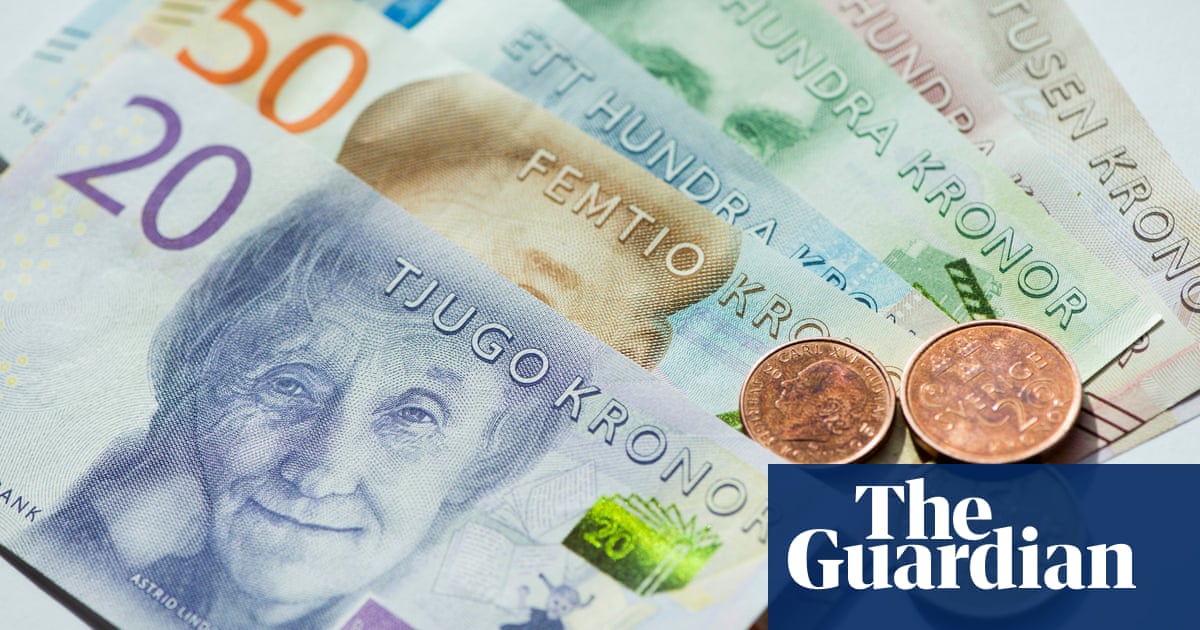cross-posted from: https://feddit.org/post/4262252
A combination of good high-speed internet coverage, high digital literacy rates, large rural populations and fast-growing fintech industries had put the Nordic neighbours on a fast track to a future without cash.
[…]
But Russia’s invasion of Ukraine in 2022 and a subsequent rise in cross-border hybrid warfare and cyber-attacks blamed on pro-Russia groups have prompted a rethink.
[…]
The Swedish government has since completely overhauled its defence and preparedness strategy, joining Nato, starting a new form of national service and reactivating its psychological defence agency to combat disinformation from Russia and other adversaries. Norway has tightened controls on its previously porous border with Russia.
[…]
[Norway’s] justice and public security ministry said it “recommends everyone keep some cash on hand due to the vulnerabilities of digital payment solutions to cyber-attacks”. It said the government took preparedness seriously “given the increasing global instability with war, digital threats, and climate change. As a result, they’ve ensured that the right to pay with cash is strengthened”.
[…]
I was once a proponent of cashless societies. Not anymore. Too many vulnerabilities, too many ways for governments to take control of your finances.
As much as I hate using cash, I understand that the credit card companies charge ridiculous fees to businesses and also that people with very low income don’t always have access to digital forms of payment. Maybe Sweden does better with equipping their entire society with digital tools, but in the US I don’t think we are ready for a fully digital payment society.
I don’t like using cashless anything because I know part of the cost is my privacy. Having said that, convenience is a powerful draw and cash can be a pain, especially when you have to find a spot for small coins.
My derped eyes and pronked brain read cashless as moneyless. Comon, Nordic countries, you can do it.
They call that type of “no currency” economy bartering. It works well for peer to peer transactions. Not quite so well for larger ones.
If it isn’t cash you have to ask permission from someone to use it
Cashless can only work if you adopt a digital cash such as monero, other wise you are taking away privacy, control and possibly small transactions (depending on what fees are common in your country)
In a cashless society banks and credit companies become your rulers as you have no real way to bypass them.
I suspect that any country that tries to go cashless without a real cash alternative, will just find itself with a new form of cash (gold, silver, etc) since eventually there will be enough people trying to avoid fees and taxes
Cryptocurrency has basically many of the same problems as traditional banks, it’s just a matter of who is controlling it. Monero is slightly different from most, because it is much more anonymous, but it’s really only a matter of time before even that advantage is lost.
There is no substitute for physical currency if you want privacy and anonymity.
Do you know how Monero’s advantage could potentially be lost?
From what I understand, which honestly, isn’t a lot - the method used to anonymize transactions and balances is more like obfuscation than anything else. The system uses various techniques to fuzz up the data in such a way that it becomes impossible to trace.
It’s a bit like if you wanted to send a bank transfer for £200 but anonymize it somewhat, you could transfer that money around between a bunch of other bank accounts, before sending it on to the final source. And if multiple people are doing the same thing, it becomes essentially impossible to determine where the money entered and left.
The problem is though that such systems aren’t true encryption in the same way that RSA is, for example - the data isn’t unreadable, and it’s not impossible to reverse, it’s just that there’s so much junk data and it’s such a mess that it makes the true transactions difficult to identify and the end user has extremely strong plausible deniability. However, it’s likely just a matter of time before some state actor finds a vulnerability in the technique that allows them to trace transactions - if they haven’t already done so.
Hmm gotcha. Yeah this stuff goes over my head haha but it sounds similar to a Bitcoin mixer/tumbler. I wonder if the anonymity scales with the number of users using the network. I also wonder if you happened to send a transaction at a “bad” time (no-one else is using the network) then it’s easier to trace.
Yeah, totally - I think it’s designed to be hard to understand, both tech stuff and financial stuff is often made intentionally confusing, in my opinion. It’s not dissimilar to the bitcoin mixers, but it’s still much stronger - the system is automated, you can’t mess it up as a user, you’re less reliant on a single-point-of-trust, and so on.
You might be on to something about quiet periods - I don’t really have the knowledge to say either way. There might be a bit of stuff that goes on in the background for wallets even if they’re not actively conducting “real” transactions. But, I don’t know, really.
I’m more concerned with the threats from the people in charge of the system, but whatever gets them to the conclusion that it’s a bad idea is fine with me.
Something we can thank the Russians for and hackers everywhere.
Yeah, considering how bad banks and other financial institutions are at IT security and the fact that there’s no incentive for a capitalist financial institution to fix that problem, it’s not a good idea.
Sure, but if a cyber attack knocks out your credit card systems in a targeted attack, chances are they’re taking your cash machines down as well.
And who carries enough cash around to be useful any more? I know I don’t. I might have a £20 note tucked in my phone case at a push.
£20 should still get you a meal of some kind until the credit cards and cash machines are back, hopefully within a few hours or next day at the latest.
Can’t really say I even have that much on me most of the time though - perhaps I should change that, keep a minimum of like €50 that’s only touched in an emergency or something. Swedbank has had several outages in the last few months here in Estonia and it affects many stores’ payment terminals too.
Funny way to say people dont like the idea of having all financial privacy ripped away from them.
Noone uses cash in Sweden, except for maybe drug dealers and super old people(and the occasional tourist). Most businesses dont even accept cash anymore.
It isnt just the convenience of not having to carry cash, it is also much safer. Much lower risk of getting robbed, for both individuals and businesses.
Support the drug dealers!









